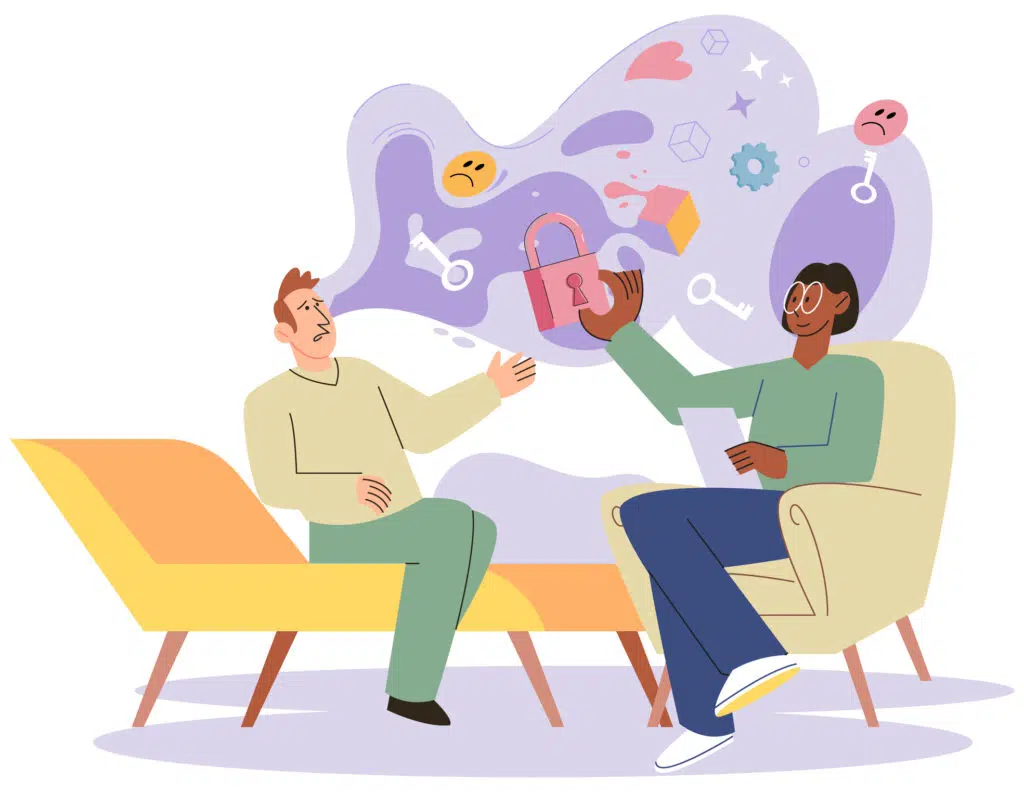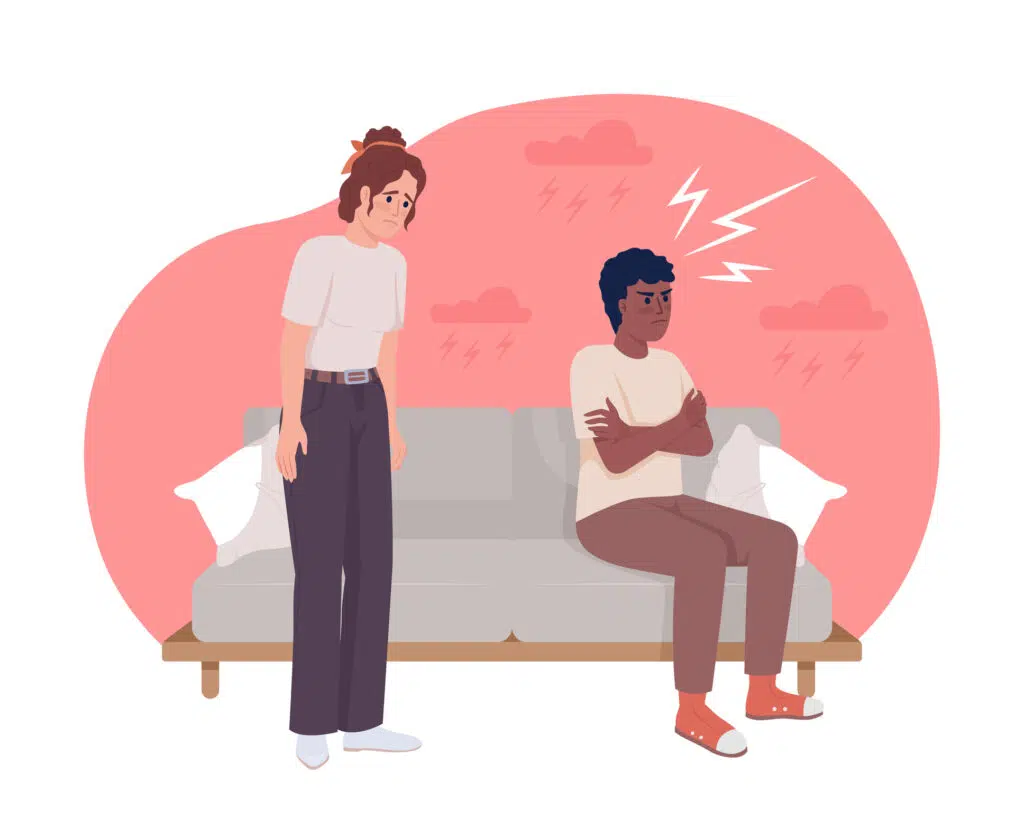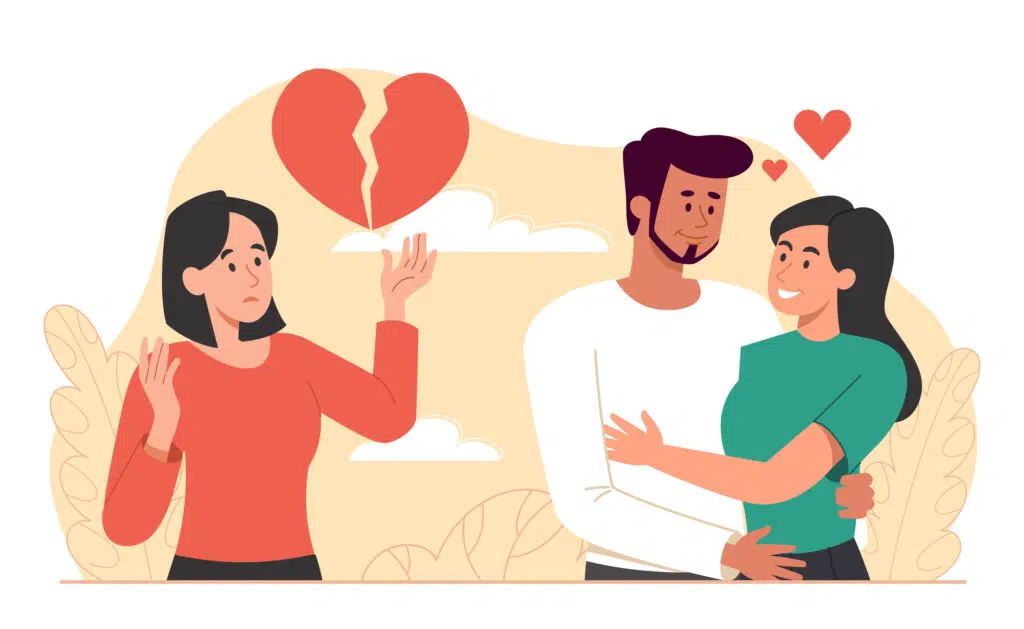What Are The Benefits Of Cognitive Behavioral Therapy?

Cognitive behavioral therapy goes beyond managing the symptoms but can help address the root cause of several mental health conditions. Backed by extensive research, CBT is an evidence-based approach that is shown to be effective across various populations. Let’s dive into the benefits of cognitive behavioral therapy and how CBT can result in positive outcomes for those seeking to improve their mental well-being.
What Is CBT And How Does It Work?
So, what is cognitive behavioral therapy, and what is CBT most commonly used for?
CBT is a type of talk therapy that helps people identify and change unhelpful thinking patterns and behaviors that contribute to or worsen mental health conditions and emotional distress, such as:
- Depression
- Anxiety disorders
- Stress
- Low self-esteem
- Work stress
- Post-traumatic stress disorder (PTSD)
- Obsessive-compulsive disorder (OCD)
- Attention-deficit hyperactivity disorder (ADHD)
- Substance abuse
A CBT therapist may use a number of strategies to do this, including:
- Cognitive restructuring: Identifying and challenging harmful thought patterns
- Behavioral techniques: Exposure therapy and relaxation techniques.
- Problem-solving skills: Learn practical skills to approach and manage problems.
- Communication training: Develop skills to set boundaries and express emotions.
What Are Examples Of Cognitive Restructuring?
In a therapy setting, cognitive restructuring involves working with your therapist to identify an automatic negative thought, challenge it, and develop a more balanced one.
For example, someone with social anxiety gets invited to an event and thinks, “Everyone will judge me, and no one will speak to me.” But, a more balanced thought could be, “Starting a conversation can feel hard, but other people might be nervous too and will appreciate my effort to connect with them.”
Cognitive restructuring is just part of CBT. As a CBT therapist tailors their approach to the individual, your exact CBT therapy session is based on your needs, goals, symptoms, preferences, and learning styles.
Why Is CBT So Effective?
CBT is an evidence-based approach because it boasts a large body of research that supports its effectiveness. That means that the positive outcomes from CBT are not isolated incidents but seen across multiple studies by different researchers and psychologists in various settings.
Several factors contribute to CBT’s effectiveness:
- Dives deeper into the cause of a problem to promote lasting change.
- Teaches individuals practical skills they can use on their own.
- Equips individuals with long-lasting coping skills to help them now and in the future.
- Follows a structured format giving individuals directions and goals.
- Uses a collaborative approach that encourages you to participate in therapy.
What Are The Strengths Of CBT?
- Managing And Overcoming Anxiety Disorders
Researchers at the National Institutes of Health found that after three months of CBT treatment, children with anxiety noticed a significant reduction in anxiety symptoms and improved functioning.
So, how does CBT help with anxiety?
CBT works to manage anxiety by identifying and challenging unhelpful thoughts and behaviors that contribute to anxiety feelings. The first step is becoming aware of automatic negative thoughts and starting to restructure them, as well as modifying anxiety-related behavior. For individuals with anxiety, that can include exposure therapy, where you’re gradually exposed to a trigger in a very safe and controlled environment.
CBT techniques for anxiety can also include:
- Relaxation techniques: Learn deep breathing, mindfulness meditation, and progressive muscle relaxation.
- Skills development: Learn coping skills to manage your everyday anxiety in real life that you can use independently outside of therapy.
- Treating And Alleviating Depression Symptoms
One study found that both online CBT and in-person CBT yielded significant improvements in both depressive symptoms and quality of life from baseline to post-treatment.
Several types of talking therapies can be used to help people with depression, including evidence-based approaches like interpersonal therapy and cognitive behavioral therapy. Cognitive behavioral therapy for depression works by addressing negative thought patterns and helping individuals break away from the vicious cycle of low mood and negativity. As depression can leave you feeling hopeless, CBT can increase a sense of control and empower you to navigate depression more effectively.
In a large meta-analysis, researchers found that CBT appears to be as effective as medication in the short term but more effective in the long term.
Treatment for depression can include medication, therapy, or a combination of the two, depending on your individual preferences and needs. If you’re struggling with depression, remember that you don’t have to go through it alone. Book an appointment with a depression therapist near you today.
- Developing Coping Skills To Manage Stress
A significant benefit of CBT for many people is that during therapy, you learn coping skills. CBT equips you with tools to manage your emotions, behaviors, and thoughts more effectively. The idea is that by providing individuals with tools, knowledge, and skills to manage their mental health challenges, they will be better equipped to handle any future problems and relapses.
No doubt, CBT plays a significant role in initial treatment and recovery, but a big part of CBT is to promote independence and help individuals manage their mental health.
- Breaking Negative Thought Patterns And Enhancing Self-esteem
One review and study found that CBT-based interventions had a moderate to large effect in increasing self-esteem.
Cognitive behavioral therapy for self-esteem issues aims to target the underlying thoughts and behaviors that contribute to negative self-perception. Individuals work with a therapist to challenge negative thoughts and replace them with more balanced ones. This process is what helps to build self-esteem and a more positive self-image.
- Improving Relationships And Communication Skills
CBT can help improve relationships and enhance communication in a few ways:
- It can help you to identify unhelpful communication and thinking patterns.
- Provide you with tools to manage stress and negative emotions
- Build problem-solving and communication skills
Cognitive behavioral therapy can help individuals become more self-aware, learn how to communicate more assertively, express emotions, and improve active listening.
Who Would Benefit Most From CBT?
CBT is a versatile therapy approach that has a vast number of applications. CBT can help people with:
- Specific conditions such as anxiety disorders, depression, OCD, or PTSD
- Particular challenges like low self-esteem or workplace stress
- A motivation to share and get actively involved in therapy
While CBT is a widely used and effective therapy, it’s not a one-size-fits-all solution for everyone. In some cases, an alternative therapy or treatment option may be a better fit, such as those with:
- Severe and complex mental health conditions
- Complex trauma
- Active addiction
- In acute crisis and need immediate symptom management
The reality is that the best therapy approach is one that is personalized and tailored to your needs and care. At Thriving Center of Psychology, our therapists are experts in a range of approaches, including cognitive behavioral therapy. Our therapists can help you address specific problems, build resilience, learn ways to cope, and understand yourself better. By reaching out for professional support, you’re taking a big step toward feeling better, taking control, and finding lasting wellness and happiness.
If you’re looking for cognitive behavioral therapy near you, book an appointment online directly with a therapist, fill out our Therapist Matchmaker Survey, or call one of our offices in NYC, LA, and throughout the country.

How to Move On After a Friendship Breakup
Friendship breakups can sting just as much as a romantic breakup. After all, you’re experiencing a loss of shared history and an understanding of each other that can leave you feeling lonely and isolated. Not all friendships are forever, but moving on from the loss of a friendship does take time and some self-compassion.

Signs You’re in a Toxic Relationship
A toxic relationship can chip away at your well-being and happiness. Toxic partners can be manipulative and charming, making it difficult to recognize the signs that you’re in a toxic relationship. You deserve to be in a supportive and healthy relationship.

10 Common Marriage Reconciliation Mistakes to Avoid After Infidelity
Infidelity can leave couples devastated. If you’ve been affected by infidelity and want to salvage your relationship, rebuild trust, or make a tough decision, keep reading for 10 common reconciliation mistakes to avoid after infidelity.

Survey: 72% of Americans are Stressing About the Upcoming Presidential Election
Political viewpoints in the U.S. have always been contentious, but is the impact of politics in the United States making it difficult for people to live their everyday lives? With some anticipating another brutal and long campaign season ahead of the upcoming 2024 presidential election, nearly half of Americans say politics is negatively impacting their mental health.




